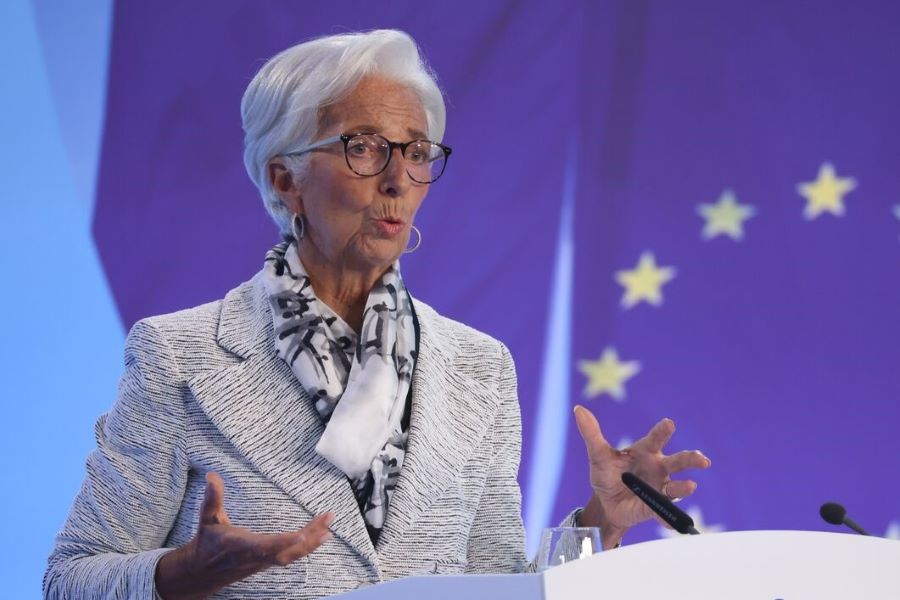In a significant development in the economic landscape of the eurozone, European Central Bank President Christine Lagarde suggested that policymakers may be leaning towards a reduction in interest rates. This potential move could materialize as soon as June. This announcement comes in the wake of fresh projections indicating that inflation is on track to hit the coveted 2% target. These projections suggest that this milestone could be achieved by 2025.
Caution Amidst Optimism
Following the ECB’s decision to maintain the deposit rate at 4% for the fourth consecutive meeting, Lagarde addressed the media in Frankfurt. She acknowledged a discernible slowdown in consumer prices. However, she emphasized that she and her colleagues are not yet “sufficiently confident” to initiate monetary easing at the present moment.
The Need for Evidence
“We unequivocally require more evidence, more detailed information,” Lagarde conveyed to journalists, according to Barron’s report. She highlighted the importance of forthcoming wage statistics. According to her, a clearer picture would emerge in the coming months, with April providing initial insights and June offering more substantial data.
Echoes Across Central Banks
This announcement places the ECB in a similar position to other major central banks, such as the Federal Reserve and the Bank of England. All of them are grappling with the question of when to address inflation concerns. They also need to decide when to begin unwinding the extraordinary monetary measures implemented to combat it. While inflation in the 20-nation eurozone is nearing the target, ECB officials remain cautious about premature action. This caution is particularly evident without assurances regarding the containment of wage increases.
Glimmers of Hope
The ECB’s latest quarterly forecast provided a ray of hope, projecting inflation to reach 2.3% this year, down from the previous estimate of 2.7% in December, and revising the 2025 forecast to 2%. Economic growth projections were also revised, anticipating a 0.6% expansion in 2024 compared to the previous estimate of 0.8%.
Market Expectations
These updated inflation forecasts are likely to bolster investor expectations of an initial rate cut in June. Markets are currently pricing in a total reduction of one percentage point in ECB rates for 2024, while economists predict as many as three cuts.
Balancing Act
While there is growing confidence among policymakers regarding the sustained decline in inflation, there is also a consensus. It is premature to declare victory, and further data is needed before authorizing monetary loosening.
Clarification from Leadership
“We did not deliberate on rate cuts at this meeting,” Lagarde clarified. She added, “However, discussions have commenced on scaling back our restrictive stance.”
Data Dynamics
February’s inflation figure of 2.6% exceeded expectations, providing ammunition to those advocating against hastily lowering rates. However, a Nowcast compiled by Bloomberg Economics suggests that March’s inflation stands at 2% — potentially indicating that the ECB is closer to its target than anticipated.
Proceeding with Caution
Despite these developments, most policymakers prefer to await the trickle of wage data expected in the coming months before taking decisive action. This cautious approach is shared by influential voices such as Greece’s Yannis Stournaras. He recently stated that the ECB “will not possess adequate information” to decide on cuts before June.
Global Implications
A decision to lower rates in June could position the ECB to act ahead of the Federal Reserve. This comes as Chair Jerome Powell expressed caution regarding the timing of rate adjustments in the United States.
Emphasis on Autonomy
In response to concerns about potential alignment with US policy, Lagarde emphasized the ECB’s autonomy. She stated, “The ECB is an autonomous central bank and will act independently.”
Analytical Concerns
Nevertheless, some analysts caution that lowering borrowing costs before the Fed could pose challenges. This is particularly relevant. Allianz Chief Economist Ludovic Subran highlighted it, emphasizing the scenario where the Federal Reserve refrains from cutting rates entirely this year.
Looking Ahead
As the eurozone navigates its economic landscape, all eyes will be on the ECB in the coming months. Policymakers will weigh the delicate balance between addressing inflation concerns and supporting economic recovery. With June looming as a potential turning point, the decisions made by central bankers will undoubtedly have far-reaching implications for the global economy.
Subscribe now for a 2-Year Wall Street Journal Print Subscription, receiving daily delivery six days a week. Gain access to The WSJ digital edition on iPhone, Android, and PC, staying informed about finance, politics, medicine, and global news. Exclusive 70% discount, act now! for more information call WSJ cell phone: (800) 581-3716

